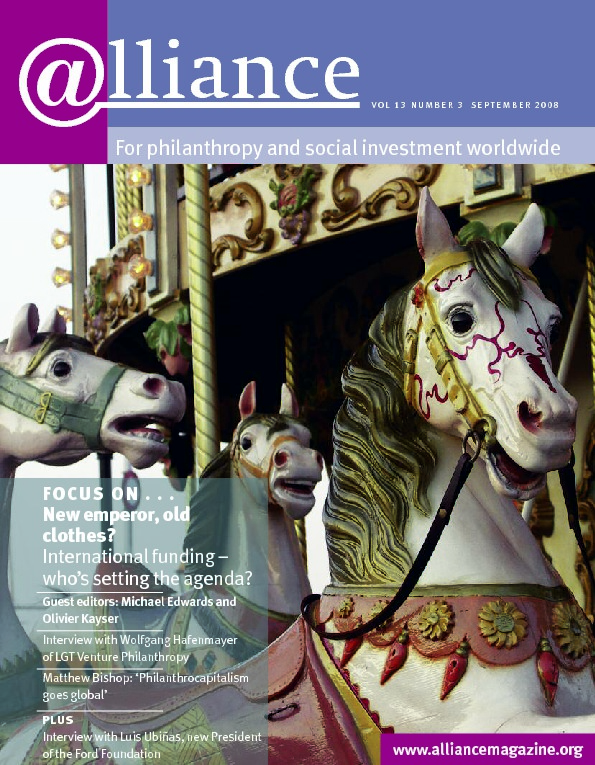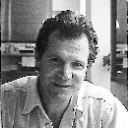I was very surprised and disappointed to read the letter from David Bonbright in the December issue of Alliance. He has no grounds at all for his assumption about my ‘mental model’ of philanthropy. In my mind, the ultimate ‘beneficiaries’ are always just that – the ‘end-users’ whose lives will, it is hoped, be changed, whether they are people with HIV/AIDS, poor farmers, or homeless and unemployed young people in the UK. I specifically refer to the fact that ‘voices close to the ground’ (a term used by Rory Tolentino in the June issue of Alliance) are often translated, not always effectively, by large international NGOs.
Having worked for two large international NGOs for ten years I realize their role as intermediaries between funder and, yes, ultimate beneficiary. The international NGO is the beneficiary only in the sense that it is the actual recipient of the donation and accountable to the donor for how the money is spent. The challenge is to ensure that the communication element in that
intermediary role is two-way.
It is indeed complicated and expensive to achieve this. Many international NGOs have, over the years, made genuine and costly attempts to listen to beneficiaries to understand their needs and priorities, to determine the best way to develop a genuine partnership that respects and builds on local understanding and expertise, and to translate this into effective communications with funders. Participatory rural appraisal was one such approach adopted by ActionAid and others in the early 1990s. Of course, these and other methods are imperfect, particularly in countries where there is little or no experience of other ‘democratic’ activity, particularly for women. The point, though, is that these attempts are made honestly and in good faith. The real problem remains that no one has yet discovered an ideal way of getting at the views and opinions of beneficiaries and conveying them reliably to funders. It is not the will, but the means to do this that remains the great challenge.
Theresa Lloyd
Theresa Lloyd Associates






Comments (0)